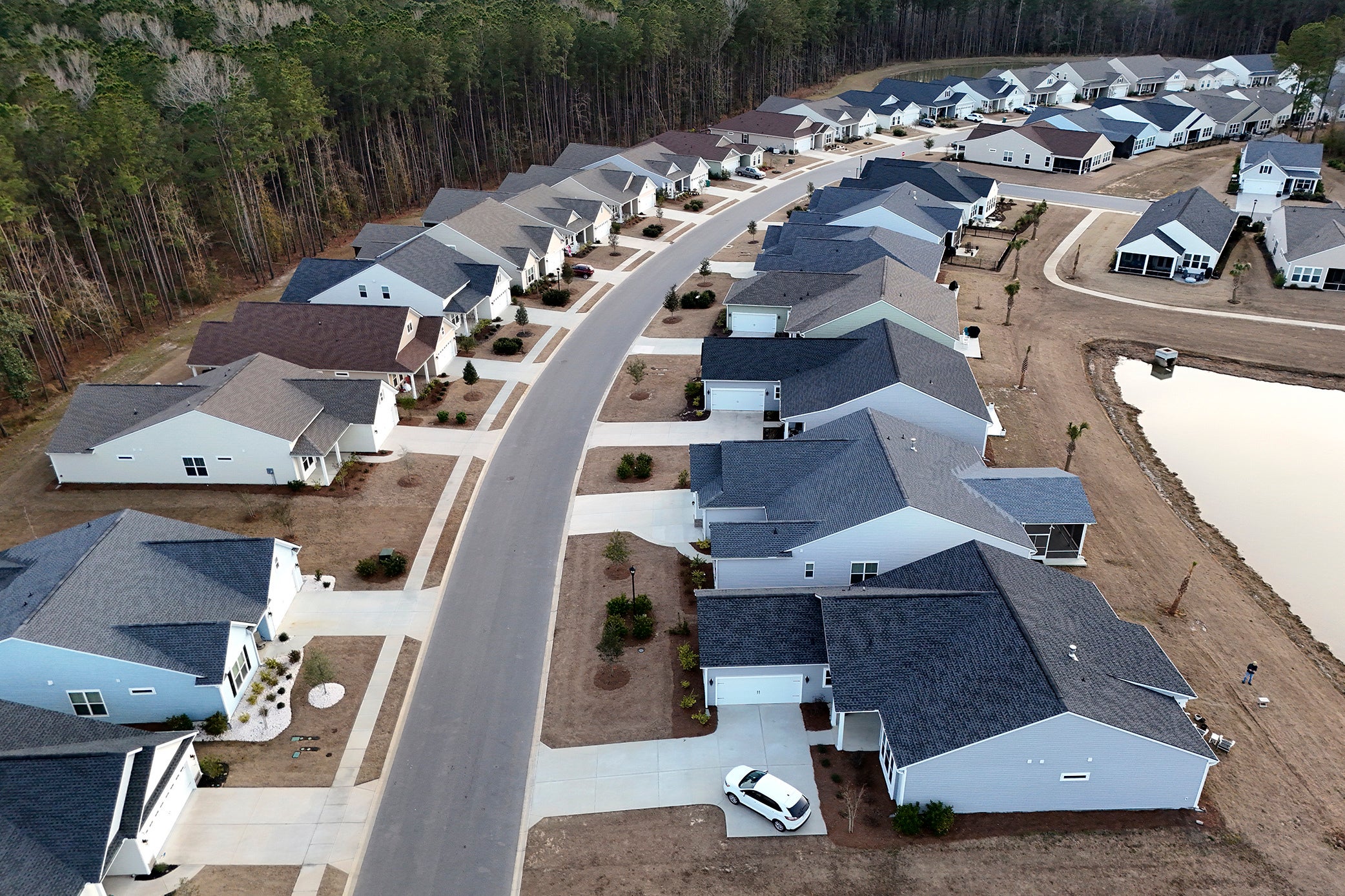Average long-term US mortgage rate rose this week to 6.77%, highest level in 10 weeks
The average long-term U.S. mortgage rate rose this week to its highest level in 10 weeks, a setback for prospective homebuyers ahead of the spring homebuying season

Your support helps us to tell the story
From reproductive rights to climate change to Big Tech, The Independent is on the ground when the story is developing. Whether it's investigating the financials of Elon Musk's pro-Trump PAC or producing our latest documentary, 'The A Word', which shines a light on the American women fighting for reproductive rights, we know how important it is to parse out the facts from the messaging.
At such a critical moment in US history, we need reporters on the ground. Your donation allows us to keep sending journalists to speak to both sides of the story.
The Independent is trusted by Americans across the entire political spectrum. And unlike many other quality news outlets, we choose not to lock Americans out of our reporting and analysis with paywalls. We believe quality journalism should be available to everyone, paid for by those who can afford it.
Your support makes all the difference.The average long-term U.S. mortgage rate rose this week to its highest level in 10 weeks, a setback for prospective homebuyers ahead of the spring homebuying season.
The average rate on a 30-year mortgage rose to 6.77% from 6.64% last week, mortgage buyer Freddie Mac said Thursday. A year ago, the rate averaged 6.32%.
Borrowing costs on 15-year fixed-rate mortgages, popular with homeowners refinancing their home loans, also rose this week, pushing the average rate to 6.12% from 5.90% last week. A year ago it averaged 5.51%, Freddie Mac said.
The increase in rates echoes moves in the 10-year Treasury yield, which lenders use as a guide to pricing loans. Stronger-than-expected reports on inflation, the job market and the overall economy have stoked worries among bond investors that the Federal Reserve will wait longer before it begins cutting interest rates.
Hopes for such cuts amid signs that inflation has declined from its peak two summers ago has been a major reason the 10-year Treasury yield has mostly pulled back since October, when it climbed to its highest level since 2007.
Investors’ expectations for future inflation, global demand for U.S. Treasurys and what the Fed does with interest rates can influence rates on home loans.
“The economy has been performing well so far this year and rates may stay higher for longer, potentially slowing the spring homebuying season,” said Sam Khater, Freddie Mac’s chief economist.
So far this year, mortgage applications to buy a home are down in more than half of all states compared to a year earlier, noted Khater.
When mortgage rates rise, they can add hundreds of dollars a month in costs for borrowers, limiting how much they can afford in a market already out of reach for many Americans. They also discourage homeowners who locked in rock-bottom rates two or three years ago from selling. The average rate on a 30-year mortgage remains sharply higher than just two years ago, when it was 3.92%.
The cost of financing a home has come down from its most recent peak in late October, when the average rate on a 30-year mortgage hit 7.79%, the highest level since late 2000.
Many economists have projected that mortgage rates will continue heading lower this year, though forecasts generally have the average rate on a 30-year home loan hovering around 6% by the end of the year.
Elevated mortgage rates and a dearth of available homes have kept the U.S. housing market mired in a slump the past two years. Sales of previously occupied U.S. homes sank to a nearly 30-year low last year, tumbling 18.7% from 2022.